More than 1,000 young men and women from universities throughout North America and beyond are heading to the Crown Heights neighborhood of Brooklyn, N.Y., for the annual Chabad on Campus International Shabbaton, which will take place this year from Friday, Nov. 7, to Sunday, Nov. 9.
Highlights include a double-decker bus tour of Manhattan; a traditional Shabbat dinner; “Friday Night Live,” a series of discussions and workshops; an Ambassadors for Israel track dealing with Israel advocacy issues on campus; group reunions and social hangouts; a Shabbat luncheon; lectures and interaction with leading Jewish thinkers; a Havdalah ceremony; a Saturday-night mega event with singer, songwriter, rapper and spoken-word artist Ari Lesser, and nationally featured New York comedian MODI; a visit to the Ohel in Queens, N.Y., the resting place of the Lubavitcher Rebbe, Rabbi Menachem M. Schneerson, of righteous memory; and a formal closing program.
“The Shabbaton is a fully immersive experience where students are engaged intellectually, stirred emotionally and uplifted spiritually,” said Rabbi Yossy Gordon, executive vice president of Chabad on Campus International. “Even though there are students from hundreds of colleges throughout the world, we are all one community. And while the Shabbaton only lasts a few days in time, the friendships created and the strengthened connection to one’s Judaism will hopefully last a lifetime.”
Two students—Lyssia Katan, 20, of New Jersey, an entrepreneur major and junior at Drexel University in Philadelphia who has attended the Shabbaton before; and Aaron Tell, 21, of South Florida, a business/ marketing major and senior at the University of Central Florida in Orlando who is going for the first time—describe what participating in this year’s program means to them.
Q: Lyssia, what has your involvement been with Chabad on Campus?
Lyssia: I became involved with Chabad (Chabad Serving Drexel University, co-directed by Rabbi Chaim and Moussia Goldstein) right away, during freshman year before Sukkot, when I happened to meet the rabbi one day while he was handing out challah. Since then, I have served on committees and the board.
Q: What do you expect to get out of this year’s Shabbaton?
Lyssia: This is my third year going; about 15 other Drexel students are going as well, and we travel there by bus. The first year, I had no expectations. When I was there, I made friends with students from London, and we’re still in contact. “Jewish geography” blows your mind at the Shabbaton; you meet people from everywhere. And it’s nice to get away from it all. We’re in the middle of mid-terms, and I look forward to turning everything off and focusing on Shabbat. I’m even staying with the same host family as last year.
Q: What one program or specific part of the Shabbaton stands out as especially memorable?
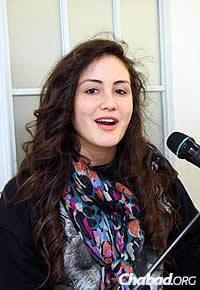
Lyssia: Rabbi Simcha Weinstein (co-director of Chabad of Clinton Hill and Pratt Institute in Brooklyn, and author of Up Up and Oy Vey: How Jewish History, Culture and Values Shaped the Comic Book Superhero). I heard him first talk about a topic he titled as something about superheroes, so that was intriguing from the start. He changed my perspective on rabbis; he changed my perspective on how you think. Any time he gives a lecture, I’m there.
Q: What is the lasting value of the Shabbaton, and why do you keep going year after year?
Lyssia: It helps keep that tie with Judaism and other Jewish students. It doesn’t matter how religious you are; you’re a Jew, and you belong. Everyone’s up late at night, especially on Friday, talking and learning. Judaism has the answer to everything, and it’s nice to learn about things you would never learn about anywhere else.
Q: What is your favorite part of the weekend, and would you recommend it to others?
Lyssia: I remember on Saturday night in Times Square, a huge group of students from the Shabbaton starting doing the hora. It was amazing to see. And the Shabbat luncheon is also huge; there was so much food. In fact, you’re constantly eating. That’s important to a college student. As for recommending others, I’d say absolutely. Go—don’t let anything scare you! Go and meet new people and learn new things. It’s a really great experience. By being there, I’ve learned that every Jew has a place, a home to go.
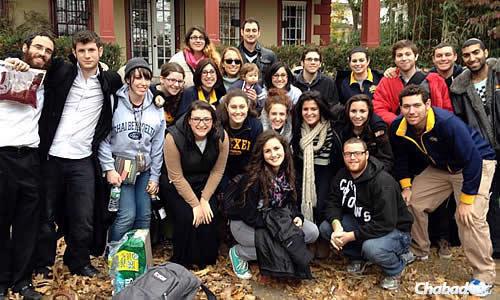
Q: Aaron, what made you decide to attend the Shabbaton for the first time?
Aaron: I’ve been on the Taglit-Birthright Israel program twice—once as a participant and this past summer as a student leader. This year, I’m on Chabad Exec (Chabad at University of Central Florida in Oviedo, Fla., co-directed by Rabbi Chaim and Rivkie Lipskier). I’m also in a fraternity, AEPi, and nearly all of my friends have gone. I thought, this is my last year in college; let me experience this. I want that same feeling you get in Israel on Shabbat—that everyone around you is observing it, that same feeling of connection.
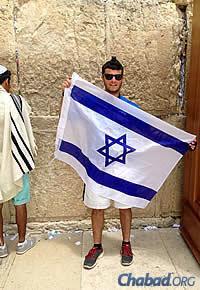
Q: What is it about the Chabad center on campus that you find so appealing?
Aaron: Nothing is ever forced; you come when you want and participate when you want. I try to do all I can. Every Friday night for Shabbat dinner, anywhere from 150 to 200 students go to the Lipskiers for the atmosphere, the homey feeling. I like being part of that community, and I like that it’s always welcoming.
Q: What lasting memories has your involvement with Chabad given you, and how do you plan to connect with Judaism post-college?
Aaron: I have a twin brother, and he was always the one active in Jewish life; he was interested in Hebrew school and Sunday school. It didn’t really hit me until I went to Israel with a group from UCF and my Chabad rabbi. It hit me especially hard at the Western Wall in Jerusalem. My grandfather had passed away prior to that, and at the wall I felt his presence, how proud he was of me being there and of my Jewish activities. It was overwhelming. And it’s something that hasn’t left. As for the immediate future, my goal is to be part of the “Teach for America” program, or travel Europe and Thailand, and teach English for a while. I’ll find a local synagogue or Chabad House to connect with.
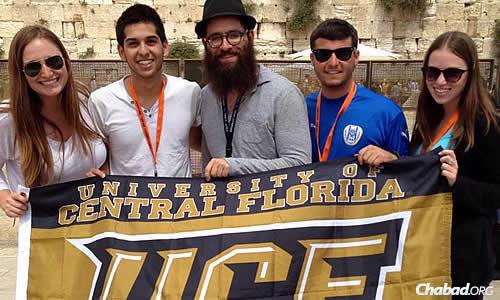
Q: What specific parts of this week’s three-day program interest you the most?
Aaron: The courses, the lectures, the discussions on Shabbat. I’ll be staying with a host family, and I’m looking forward to that and to a traditional Shabbat as well, with no use of electricity. I’m actually heading to New York a day early, on Thursday, to get some time to experience the city first. More than 40 students from UCF are going, along with the rabbi. I’m taking four days away, and I can’t wait. I had the time to do it this year, and my professors even helped me make it happen. I’m really looking forward to it all.
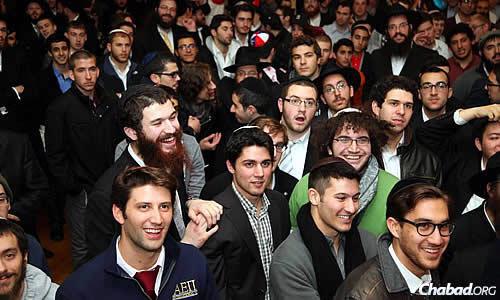
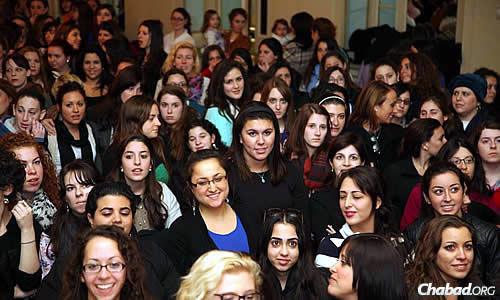


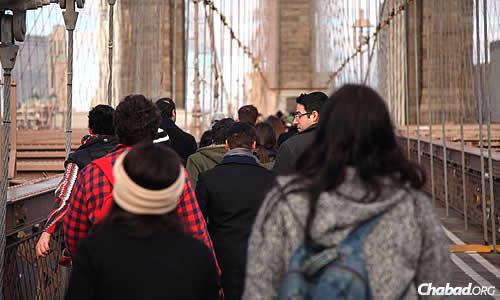


Start a Discussion